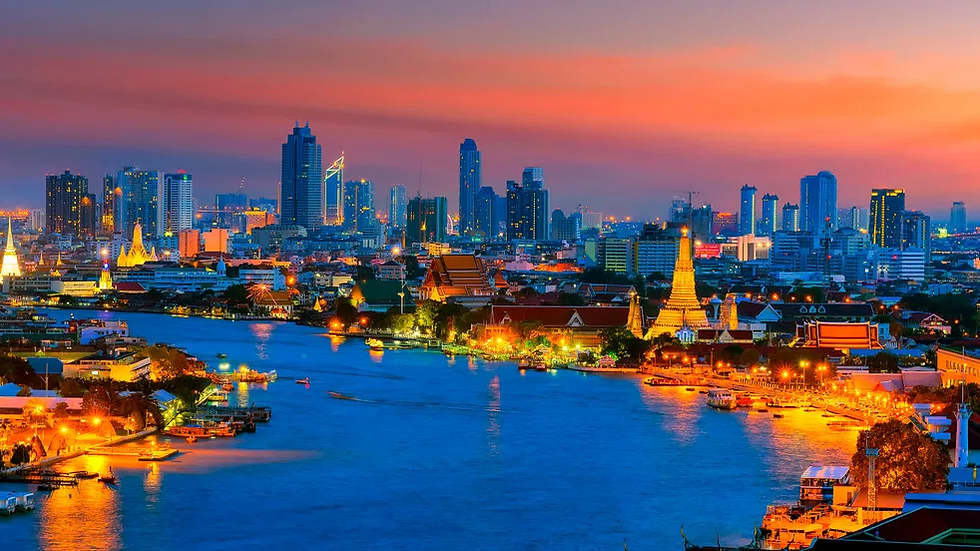The recently introduced legislation for entertainment complexes in Thailand represents a crucial step toward the potential legalization and regulation of integrated resorts, according to Fredric Gushin, Managing Director of the global gaming consultancy Spectrum Gaming Group. The Thai government released the Draft Integrated Entertainment Business Act earlier this month, with a public consultation period open until August 19th. The proposed law seeks to modernize outdated regulations and establish a comprehensive framework to support and regulate the industry's growth.
Gushin emphasized that the success of these projects hinges on addressing the interests of three key stakeholders: the government and the general public, potential operators of Entertainment Centers, and the financial community that will fund these ventures. "The draft law appears to be a positive step forward that addresses the concerns of all three major stakeholders," Gushin noted.
He stressed the importance of building public confidence in the government's approach, stating, "The public needs to be assured that the government will take the legalization of Entertainment Centers seriously" and "develop social safeguards and security procedures that meet international standards for Integrated Resorts, which have been successfully adopted in other jurisdictions." For potential operators, Gushin highlighted that the transparency and comprehensiveness of the regulatory process would be critical.
Studies predict that liberalizing the gaming industry could boost Thailand's tourism revenue by $12 billion. The new draft legislation allows for 30-year licenses with the possibility of 10-year extensions. Potential locations for the Entertainment Complexes include Greater Bangkok, Phuket, Chiang Mai, and Chonburi (Pattaya), all to be established within 100 kilometers of major airports and with a required paid-up capital of at least $283 million. Thailand is expected to compete with emerging markets like the UAE and, to some extent, Japan. Major operators, including Galaxy Entertainment Group, MGM Resorts, and Las Vegas Sands, have already expressed interest in entering the Thai market.
Gushin further explained that operators would need "assurance that the regulatory process will be transparent and comprehensive, protecting their investments." The proposed legislation, which is reportedly complete, aims to promote and regulate integrated entertainment complexes that meet standard requirements, thereby encouraging domestic investment and supporting sustainable tourism.
Under the bill, an entertainment complex must acquire a license to operate, valid for up to 30 years. Operators are required to pay a THB5 billion ($142.7 million) registration fee, along with an annual payment of THB1 billion ($28.3 million). The complexes will undergo assessments every five years, and the license can be renewed for an additional 10 years after the initial 30-year period.
While certain technical aspects, such as gaming tax rates and the number of licenses, will be determined by the Policy and Executive Committees, Gushin believes that "the draft law appears to provide sufficient discretionary authority to effectively regulate the Entertainment Centers." He also pointed out that financial investors will play a crucial role in the success of future integrated resort projects, noting that investors "will need assurance that their investment will yield a positive return, justifying their participation in the Entertainment Centers."
Gushin emphasized that enacting the law is just the beginning of a larger process. "Subsequent decisions by the Policy Board and Executive Committee, based on the law, will lead to the promulgation of regulations," he explained. These decisions will involve complex and challenging determinations, such as the locations and number of Entertainment Centers. "While not addressed in full at this time, Section 55 delineates the baseline from which the government will tackle socially responsible gaming issues, given that local participation will be permitted, with an entry fee for locals and an exclusion program."
Recent reports suggest that the Thai government is determined to move forward with the legislation, as the issue has been discussed in recent monthly meetings at Government House between leaders and representatives of the coalition parties. When asked about the possible timeline for opening the country's first integrated resort, Gushin suggested that several factors yet to be decided will ultimately determine this. "However, setting a goal for the opening of the first Entertainment Centers by 2029 is not unreasonable. Once licensees are determined, they should be held to a construction schedule that ensures the opening of the casinos within an agreed-upon timeframe with the Policy Committee," he concluded.
By fLEXI tEAM
.png)
.png)





Comments